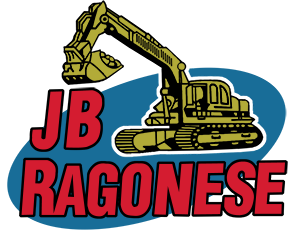Underground plumbing systems are vital for managing wastewater and sewage in homes and buildings. However, they’re often neglected, leading to significant problems if not properly maintained. This article will discuss underground plumbing maintenance tips and why following these recommendations is essential to prevent costly repairs and health hazards.
Regular Maintenance is Key
One of the most important things to know about underground plumbing is that regular maintenance is essential to prevent problems from occurring. Underground pipes are susceptible to root intrusion, corrosion, and blockages, which can lead to backups and sewage spills. Regular maintenance can help detect and prevent these issues before they become more severe and expensive.
Routine maintenance can include visual inspections, leak detection tests, and pipe cleaning. A plumber can use specialized cameras to inspect the lines and identify any blockages, corrosion, or cracks. They can also perform leak detection tests to ensure no hidden leaks in the system. Regular cleaning can also help remove any buildup of sediment or debris that can lead to blockages.
It is recommended that homeowners and building owners schedule annual maintenance checks to keep their underground plumbing system in top condition. Regular maintenance can save money on costly repairs and prevent health hazards from sewage spills.
Be Aware of Warning Signs
It’s essential to be aware of warning signs that may indicate a problem with your underground plumbing system. If you notice slow-draining sinks, toilets, showers, gurgling noises, or foul odors from your drains, it could be a sign of a blockage in the underground pipes. If you see sewage backing up into your home or building, it clearly indicates a significant problem that requires immediate attention.
Another warning sign to watch out for is a sudden increase in your water bill. A sudden increase in water usage can indicate a leak in the underground pipes, which can cause significant damage to the property if left untreated.
If you notice any of these warning signs, it is crucial to contact a licensed plumber immediately. Ignoring these warning signs can lead to more significant problems and costly repairs.
Preventative Measures
In addition to regular maintenance and being aware of warning signs, there are several preventative measures homeowners and building owners can take to maintain their underground plumbing system.
One preventative measure is to avoid flushing anything other than toilet paper and human waste down the toilet. Items such as baby wipes, feminine hygiene products, and paper towels can cause blockages in the pipes, leading to backups and sewage spills.
Another preventative measure is to avoid pouring grease and cooking oil down the drain. Grease and oil can solidify in the pipes, causing blockages and corrosion.
Planting trees and other vegetation near underground plumbing systems can also be problematic. Tree roots can invade the pipes, causing blockages and damage. Planting trees and other vegetation away from the underground pipes is important to prevent root intrusion.
Finally, regular cleaning of the drains and toilets can help prevent blockages and backups in the underground plumbing system. Homeowners and building owners can use natural drain cleaners or hire a professional plumber to clean the pipes.
Conclusion
In conclusion, applying underground plumbing maintenance tips is crucial for proper wastewater and sewage management in homes and buildings. Homeowners and building owners can prevent costly repairs and health hazards by scheduling regular maintenance, staying aware of warning signs, and implementing preventative measures. Scheduling annual maintenance checks and contacting a licensed plumber immediately upon noticing any warning signs will help ensure underground plumbing systems remain in top condition and function correctly for years.

